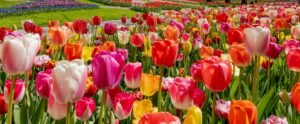Poetry inspiration is everywhere. This is evident in the fact that poems have been written on literally every topic: Grecian urns and daffodils; bodily organs and ostracized planets; the mighty pen and the lowly cockroach. Inspiration for poetry abounds.
But if you’re here, you’re either struggling to write new poetry, or else looking for the right thing to write about. This article explores different avenues for poetry inspiration: how poets synthesize their worlds and expertise into successful poetry.
Along the way, I’ll offer bits of craft advice that help unlock new poetic possibilities for you. But first, let’s get into the raw ideas that inform smart, effective poems. Where do poets find poetry inspiration?
Poetry Inspiration: Contents
Where do poets find poetry inspiration?
The truth is this: every aspect of life—language, literature, nature, politics, our selves, our lived experiences, the physical world around us, etc.—makes for good poetry inspiration. But, if you’re overwhelmed by this, don’t worry. Let’s explore some of the different ways poets find inspiration for poetry, with examples of great poems to showcase the poet’s mind. Namely, we’ll explore poetry inspiration in:
- Language
- Imagery, beauty, and the natural world
- Current events
- Unresolved questions
- Poetry itself
- The classroom
Article continues below…
Poetry Inspiration Courses We Think You'll Love
We've hand-picked these courses to help you flourish as a writer.

Toward Your Poetic Vision: A Guide Through the Poetic Life, from Craft to Publication
Write your most powerful poetry in this in-depth guidebook to the poet's craft and life.
Find Out More
Get Inspired!: Poems and Poets to Light Up Your Writing
Write new poetry inspired by US historical poets and poets laureate, while immersing yourself in poetry to transform your writing...
Find Out More
30 Poems in 30 Days
This National Poetry Writing Month (NaPoWriMo), build community and get feedback on your work while writing a poem every day.
Find Out MoreOr click below to view all courses.
See CoursesArticle continues…
Poetry Inspiration in Language
Poetry is, of course, an effort of language. Successful poetry strives to find new language for ideas and experience that are otherwise hard to name. As such, it only makes sense that language itself is a source of inspiration for the practicing poet.
By this, I mean any component or feature of language, including:
- Definitions
- Etymologies and histories
- Sounds
- Linguistics and theories of language
In poetry, a word is a window into understanding. Here’s a poem that, to my mind, is incessantly curious about language and its poetic possibilities:
“Picking Blackberries with a Friend Who Has Been Reading Jacques Lacan” by Robert Hass
August is dust here. Drought
stuns the road,
but juice gathers in the berries.
We pick them in the hot
slow-motion of midmorning.
Charlie is exclaiming:
for him it is twenty years ago
and raspberries and Vermont.
We have stopped talking
about L’Histoire de la vérité,
about subject and object
and the mediation of desire.
Our ears are stoppered
in the bee-hum. And Charlie,
laughing wonderfully,
beard stained purple
by the word juice,
goes to get a bigger pot.
I go into detail about the meaning of this poem here. In short, this is a poem interested in pushing the boundaries of language, and doing so via Lacanian theories of language and psychology. Hass isn’t just interested in beauty, he’s interested in how language captures (or cannot capture) beauty. How can a beard be stained by a word? The pot that Charlie fetches, also, is likely a symbol for expanding language’s possibilities, because the gap between language and what it represents is always asymptotic.
Poetry Inspiration in Imagery, Beauty, and the Natural World
Keats put it best in “Ode on a Grecian Urn” when he said “beauty is truth, truth beauty.” I’m also partial to Toni Morrison, who said “I think of beauty as an absolute necessity. I don’t think it’s a privilege or an indulgence, it’s not even a quest. I think it’s almost like knowledge, which is to say, it’s what we were born for.”
Poets are drawn to beauty and to imagery. It is often a source of inspiration, and successful poetry attempts not only to replicate beauty through language, but to understand the world through showcasing that beauty.
Here’s an example:
“Rain” by Raymond Carver
Woke up this morning with
a terrific urge to lie in bed all day
and read. Fought against it for a minute.
Then looked out the window at the rain.
And gave over. Put myself entirely
in the keep of this rainy morning.
Would I live my life over again?
Make the same unforgiveable mistakes?
Yes, given half a chance. Yes.
This little poem gives in to beauty, and results in a short but gorgeous meditation on life and the beauty of slowness. I love its surprising epiphany, its willingness to slow down and listen to the mind. The poem doesn’t do much to describe the rain itself, but captures its mood and essence, transcribing it into a moment of delight and wisdom.
Poetry Inspiration in Current Events
Modern affairs create much poetic fodder. While politics and the news aren’t the preferred focus of all poets, there’s a large contingent of contemporary poetry focused on analyzing and reacting to current events.
How poets approach the topic of politics is a site of contest. Should poetry be prescriptive in its politics? Can poetry be activism? Does poetry even have a place in politics—can it actually move the needle? These questions are beyond the scope of this article, but do themselves create interesting doorways into what political poetry can be.
To avoid entering the crossfires of today’s discourse, here’s an example poem reacting to the stock market crash of ‘08:
“Villanelle with a Refrain from the Wall Street Journal” by Andrew Hudgins.
Retrieved from The Atlantic.
Your twenties, thirties, forties, you’re a bull—
if you think of life as something like the Dow.
Though death of course is unavoidable,
you’re rising so fast rising’s almost dull,
your daily highs untested by a low.
Your twenties, thirties, forties, you’re a bull,
and life, for now, is fast and overfull—
for now, you might say, chuckling, for now—
though death, of course, is unavoidable.
You’re savvy enough, I’m sure, and fully able
to plan for when the market starts to slow.
Your twenties, thirties, forties, you’re a bull,
and all your hours, all, are billable,
as you tell others what, but mostly how,
though death, of course, is unavoidable.
Like contracts, life is fully voidable,
allow deferring soon to disallow.
Your twenties, thirties, forties, you’re a bull,
though death, of course, is unavoidable.
This poem, a villanelle, captures the anger and irony in the U.S. zeitgeist after the stock market crash. It borrows from the language of business and finance to satirize its logic, its way of reducing humanity to numbers, statistics, inputs and outputs. Even now, I can feel some of that anger from well over a decade ago, seeping through its offputting-yet-delightful lyricism.
For more poetry interested in current affairs, you might be interested in the below journals:
- New Verse News
- Only Poems (which is launching its Poets Howl series)
- Rattle (Specifically the Poets Respond series)
Poetry Inspiration in Other Poems
Poets, of course, inspire each other. The more you read poetry, the more ideas you will collect for your own work.
One explicit form of this is the “after poem”, a poem directly inspired by another. After poetry acknowledges its source of inspiration underneath the title, and this inspiration can include both specific lines in the source poem or the idea of the source poem itself.
A rather famous example of this is the Golden Shovel, a poetry form that Terrance Hayes invented after taking inspiration from Gwendolyn Brooks’ poem “We Real Cool.” Both poems are below. Pay attention to the end words in Terrance Hayes’ poem—they are the same as the words in Brooks’.
“We Real Cool” by Gwendolyn Brooks
THE POOL PLAYERS.
SEVEN AT THE GOLDEN SHOVEL.
We real cool. We
Left school. We
Lurk late. We
Strike straight. We
Sing sin. We
Thin gin. We
Jazz June. We
Die soon.
“The Golden Shovel” by Terrance Hayes
after Gwendolyn Brooks
1. 1981
When I am so small Da’s sock covers my arm, ww
cruise at twilight until we find the place the real
men lean, bloodshot and translucent with cool.
His smile is a gold-plated incantation as we
drift by women on bar stools, with nothing left
in them but approachlessness. This is a school
I do not know yet. But the cue sticks mean we
are rubbed by light, smooth as wood, the lurk
of smoke thinned to song. We won’t be out late.
Standing in the middle of the street last night we
watched the moonlit lawns and a neighbor strike
his son in the face. A shadow knocked straight
Da promised to leave me everything: the shovel we
used to bury the dog, the words he loved to sing
his rusted pistol, his squeaky Bible, his sin.
The boy’s sneakers were light on the road. We
watched him run to us looking wounded and thin.
He’d been caught lying or drinking his father’s gin.
He’d been defending his ma, trying to be a man. We
stood in the road, and my father talked about jazz,
how sometimes a tune is born of outrage. By June
the boy would be locked upstate. That night we
got down on our knees in my room. If I should die
before I wake. Da said to me, it will be too soon.
2. 1991
Into the tented city we go, we-
akened by the fire’s ethereal
afterglow. Born lost and cool-
er than heartache. What we
know is what we know. The left
hand severed and school-
ed by cleverness. A plate of we-
ekdays cooking. The hour lurk-
ing in the afterglow. A late-
night chant. Into the city we
Close your eyes and strike
a blow. Light can be straight-
ened by its shadow. What we
break is what we hold. A sing-
ular blue note. An outcry sin-
ged exiting the throat. We
push until we thin, thin-
king we won’t creep back again.
While God licks his kin, we
sing until our blood is jazz,
we swing from June to June.
We sweat to keep from we-
eping. Groomed on a die-
t of hunger, we end too soon.
For more on finding inspiration in poetry itself, read our article on reading poetry like a poet.
Poetry Inspiration in Ekphrasis
Ekphrastic poetry refers to any poem that takes its inspiration from other forms of art. The vast majority of ekphrastic poetry find inspiration in visual art, like paintings or movies, but ekphrastic poems have also been written about music, dance, and even dreams.
Perhaps the most well known ekphrastic poem is Keats’ “Ode on a Grecian Urn”, but here’s a less antiquated example that showcases how art inspires other art:
“Sculptor” by Sylvia Plath
To his house the bodiless
Come to barter endlessly
Vision, wisdom, for bodies
Palpable as his, weighty.
Hands moving more priestlier
Than Priest’s hands, invoke no vain
images of light and air
But sure stations in bronze, wood, stone.
Obdurate, in dense-grained wood,
A bald angel blocks and shapes
The flimsy light; arms folded
Watches his cumbrous world eclipse
Inane worlds of wind and cloud.
Bronze dead dominate the floor,
Restive, ruddy-bodied,
Dwarfing us. Our bodies flicker
Toward extinction in those eyes
Which, without him, were beggared
Of place, time and their bodies.
Emulous spirits make discord,
Try entry, enter nightmares
Until his chisel bequeaths
Them life livelier than ours,
A soldier repose than death’s.
For more on the possibilities of ekphrastic work, check out our article on how to write an ekphrastic poem.
Poetry Inspiration in the Classroom
Lastly, poets make a point of continuing their education—even if they already have MFA or PhDs. Many schools, both online and in person, offers classes with different ways of approaching new poetry, and the best classes both introduce you to great work and offer generative prompts and exercises to get you writing more poems.
We’re partial to the online poetry writing courses we host at Writers.com. But you can also get our review on some of the biggest creative writing organizations here:
https://writers.com/creative-writing-programs
You might also be interested in our self-guided course Get Inspired!, which offers prompts and readings from the canon of great American poets. Learn more here:
https://writers.com/course/get-inspired-poems-and-poets-to-light-up-your-writing
Finding Inspiration for Poems: Keep a Journal
Many poets keep journals as ways of stumbling into inspiration. A journal is a low-pressure way to write without trying to “be poetic”—the journaling writer simply documents their life, thoughts, feelings, and experiences, which can later be used for poetic fodder.
I highly encourage you to keep a journal. You don’t have to be religious about it: it’s fine if you miss days, weeks, or even months, though a regular schedule will make it all the more useful for your practice.
What you can do is go back through your journal and find insights you wouldn’t normally have had if you weren’t processing your life on the page. You might also stumble into insights in the moment, which themselves become doorways into new poetry inspiration.
Here are some resources we’ve published on the topic of keeping a journal:
Finding Inspiration for Poems: Use Poetry Prompts
Another way to inspire your own poetry is to use prompts. There’s no shortage of prompts and ideas to spur ideas for new poems. Prompts aren’t for everyone, but there are also different ways of prompting new poetry, and it’s worth trying your hand at some when you’re not sure what to write about.
Here are a few different sites, resources, and archives of prompts for poetry inspiration:
- Our article of NaPoWriMo Prompts
- Poemancer
- Poets & Writers
- Nosebleed Club’s monthly short prompts
- Poetry Foundation’s Learning Prompts
I also sometimes look for literary journals with themed submission calls, as those themes might give me prompts to inspire new work. You can find literary journals with upcoming themed submission calls at Chill Subs.
Finding Inspiration for Poems: Learn Widely
Poetry is informed by more than just its craft. Poets find inspiration in their everyday lives, their preoccupations and obsessions, and by what new knowledge they acquire as they go.
All knowledge presents its own form of inspiration for poetry, often acting as the poem’s initiating subject. Here are a few examples:
- “Pavlov Was the Son of a Priest” by Paige Lewis—which begins with that fact as the poem’s title.
- “Poem Number Two on Bell’s Theorem, or The New Physicality of Long Distance Love” by June Jordan—which takes, as its inspiration, quantum mechanics.
- “Everything” by Mary Oliver—whose subject matter requires knowledge of the life of Vincent Van Gogh.
- “Telemachus’ Detachment” by Louise Glück—inspired by Greek mythology.
- “The Imaginal Stage” by D. A. Powell—which requires knowledge of insect maturation.
This is just a small assortment of poetry that uses knowledge—of art, literature, the sciences, etc.—as doorways into new work. Of course, the poet’s own life offers plenty of fodder for poetry, too, but poetry inspiration is easier to find the more knowledge you acquire.
What are topics you know deeply? What are you currently obsessing over or studying? Incorporate your learning into your poetic practice, and you might surprise yourself with what you discover.
More Resources for Writing Poetry
Here are some more tips, prompts, and resources on the craft of successful poetry:
Finding Inspiration for Poems: Take a Writers.com Course
The courses at Writers.com are designed to help you find poetry inspiration and generate new work. Take a look at our upcoming online poetry courses!

